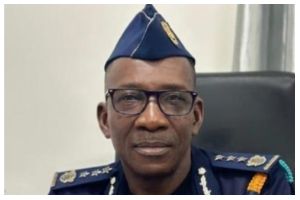Compromise, Negotiations: Unlearned Useful Lessons From Ghana’s Political Past
This article extrapolates useful lessons from a previous one that Ghanaians should have learnt from their political past as instructive for avoidance of current mistakes and missteps. The discussion in this article shows that Ghanaians have failed in applying lessons from the process of our struggle for decolonization for the benefit of post-independence political conditions.In response to a published article (News at www.ghanaweb.com, Feature Article of Wednesday, 28 March 2007) one reader wrote: “So what are you saying, master?” The said article “discusses dynamics associated with an opportunity the Gold Coast missed at the dawn of independence to negotiate for better understanding and consensus building between opposing principal local political actors, all of who had engaged in agitation against British colonization.” My understanding of the rhetorical question is that the reader expected me the writer, to tell or show the public how and what to think about the issues discussed in the article, contrary to journalistic practice.
The work assignment of a journalist is to set the agenda for social discussion by introducing issues for the public to think about and act upon, where necessary, but not to instruct on how to think or respond. However, as a political scientist, I’ll avail myself the opportunity to discuss the lessons Ghanaians should have learnt during the heady days before independence in March 1957, as elucidated in the article titled: “Ghana @ 50 in Retrospect: Missing Opportunity at Independence for Future Political Harmony.”Lesson 1: Importance of Organizational Capacity in Political Practice
Extracting independence from the colonizer showed the Gold Coast people the relevance of organizing for political action. For, “The granting of independence to the Gold Coast was the culmination of intensive mass social agitation organized under the auspices of the Convention People’s Party, CPP, that Nkrumah founded and led.” Thus, the truism that in political practice, “organization decides everything,” as noted by Osagyefo Kwame Nkrumah, first President of Ghana.Lesson 2: Choosing Unitary Government over Federalism
After all the disagreements over the form of government that independent Gold Coast needed to fashion, it turned out that the choice by Kwame Nkrumah and the CPP for a unitary administration, as opposed to regionalism or federalism was more efficacious for the size and population of Ghana. Lessons from Nigeria’s ethno-religious based federation should be instructive in judging the unitary structure of government for Ghana. Envy and competition over allocation of resources from the Federal Government to the States, has left Nigeria with conditions of permanent political antagonism, including a civil war, since independence. Unfortunately, 50 years after the fact, there are Ghanaians still advocating for ethno-regionalism for Ghana, not on the basis of reasoned considerations, but rather on the basis of what their political ancestors passed down to them and because of resource allocation envy.Lesson 3: Choosing the Ballot Box Over the Bullet
Dynamics in the Gold Coast on the road towards independence showed the importance of competing for political power through the ballot box, as opposed to the barrel of a gun or the use of machete to inflict mayhem on opponents. On the road to independence “…the CPP had won national elections in 1951, 1954 and 1956 ….” Unable to compete at the ballot box, political opponents of the CPP resorted to violence until the military intervened to do the work for them on 24 February 1966.Lesson 4: Importance of Consensus Building Around a Political Idea
By inviting members of the Opposition in the Gold Coast Legislative Assembly to a pre-independence roundtable conference to discuss proposed national Constitution, Kwame Nkrumah, leader of the majority Convention People’s Party, CPP, showed the importance of consensus building to realize a political outcome for the benefit of society at large.Lesson 5: Importance of Compromise in Political Practice
By agreeing to organize new national elections for Legislative Assembly seats in 1956, Kwame Nkrumah and the CPP majority demonstrated the importance of political compromise for the larger interest of society. After all, Nkrumah and the CPP won general elections to the Gold Coast legislature in 1954, with a mandate to rule for four years and could have resisted, legally, the colonial government’s entreaty for fresh elections in 1956, to appease the desires of the opposition.Lesson 6: Political Intransigence
It remains pure speculation as to what the Gold Coast independence constitution, the Frederick Bourne Constitution, would have provided for, had the Opposition members in the legislature participated in the Achimota Constitutional Conference in 1956. What was evident in 1956 was that members of the Opposition in the pre-independence Gold Cost legislature demonstrated a high degree of political intransigence. The Opposition’s attitude in 1956 showed also the beginnings of failure or refusal to negotiate in the politics of Ghana.Lesson 7: Nkrumah not a Dictator
Despite the refusal of members of the Opposition in the pre-independence Gold Coast legislature to participate in the Achimota Constitutional Conference, the Bourne Constitution provided for the establishment of Regional Assemblies along with Regional House of Chiefs, as the Opposition had demanded. That phenomenon demonstrated that Kwame Nkrumah did not have a dictatorial tendency, for the CPP would have used its majoritarian advantage to refuse inclusion of the Opposition’s wishes in the Bourne Constitution of the Gold Coast. Rather, by allowing for the provision of Regional Assemblies, Kwame Nkrumah, again showed the relevance of compromise in political practice.Lesson 8: Political Intransigence Can be Counterproductive
During a debate in the parliament of Ghana to amend the Bill that instituted Regional Assemblies, the Opposition made a miscalculation and walked out, whereupon the CPP used its majority to quash provision for the establishment of Regional Assemblies. In that instance, the behavior of the Opposition, led by the Northern People’s Party, NPP, and followed by the National Liberation Movement, NLM, introduced the phenomenon of unscheduled walkout of parliament by Opposition members, at their whim, from Ghana’s parliament which has stayed with the country 50 years on. To ask what would have been the outcome of the debate on the Bill that instituted Regional Assemblies had the Opposition not walked out of parliament in 1957 would be searching only for speculative answers.Lesson 9: Call for Secession was Politically Polarizing
November 20, 1956, the day the Asanteman Council (comprising Asante Paramount Chiefs) passed a resolution calling for the secession of Ashanti and Northern Territories from the Gold Coast, and Nov. 25, 1956, the day Baffuor Osei Akoto, the Chief Linguist of the Asantehene, announced the secession idea at a political rally in Kumasi, should be considered two ominous days in the pre-independence days of the Gold Coast. Indeed, threatening secessionism is the type of attitude that easily triggers civil wars in Africa.Lesson 10: Legacy of Violence by Pro-secessionists Lives on in Ghana
“After declaration of secession by the NLM, its deep-rooted and almost fanatical supporters viewed violence as the most effective means of securing their separatist agenda, ….” The legacy of violence in political practice in the Gold Coast followed independent Ghana with the life of Kwame Nkrumah as the primary target of assassins’ attacks by the Opposition. Recent events affecting the two leading political parties in Ghana, the New Patriotic Party, NPP, and National Democratic Congress, NDC, demonstrate continuity of violence in Ghana’s political practice, over fifty years since ethno-based antagonizing political Opposition parties introduced the phenomenon.Lesson 11: Kwame Nkrumah as Peace Lover and Uniting Force
“While the NLM pursued its separatist agenda, the British administration feared that Nkrumah was going to acceded to the call by his supporters to declare independence for the Gold Coast, unilaterally. But Nkrumah resisted that entreaty from his supporters preferring instead to hold on to the majoritarian advantage of the CPP in the Legislative Assembly. Subsequent events in other parts of Africa show that unilateral declaration of independence by Kwame Nkrumah in 1956 would have resulted in a protracted civil war. Nkrumah opted for due process in the interest of peace. That Nkrumah offered several concessions to accommodate the Opposition was testimony to his character as a uniting force.Conclusion
It is clear from the above that Ghana, as a nation, missed the essence of problem solving negotiations for political harmony before independence, and that deficiency has had regressive effect on the political dynamics of the nation since independence. That the Asantehene did not celebrate Ghana’s 50th independence anniversary in Accra, the capital, is a throwback to 1957 when the reigning Asantehene refused to accept invitation of the CPP government to celebrate the granting of independence in Accra. In the 1957 case, the Asantehene listened to the advice of the secessionist NLM bosses opposed to Kwame Nkrumah.Refusal of Ghana’s former President Jerry Rawlings to participate in state-sponsored celebration of Ghana’s 50th Independence Day celebration is yet another indication of the uncompromising attitude of Ghanaians in political practice. Ghanaians, as a people, seem to have an aversion towards compromise and we experience that everyday in Ghana's political life with internal ferment of CPP, within the so-called Nkrumahist family, NDC, NPP, among others, typifying what this article is alluding to.















